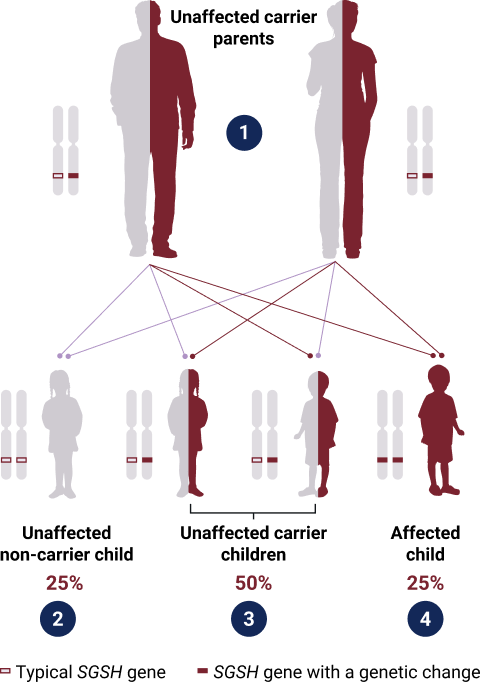Mucopolysaccharidosis type IIIA (MPS IIIA), also known as Sanfilippo syndrome type A, is part of a family of lysosomal storage diseases called mucopolysaccharidoses.
These are genetic diseases that affect certain enzymes in the body that are found in lysosomes.





